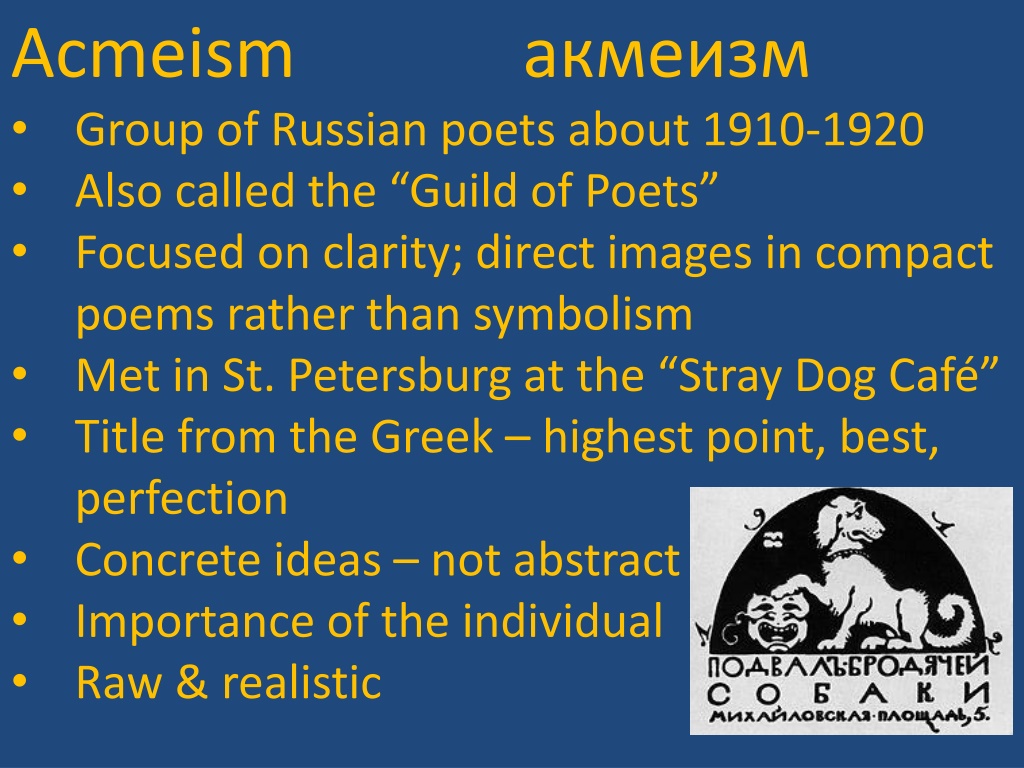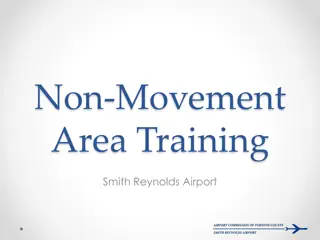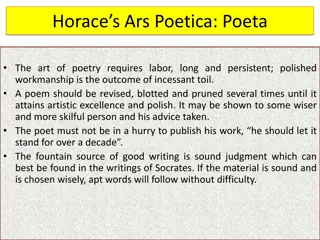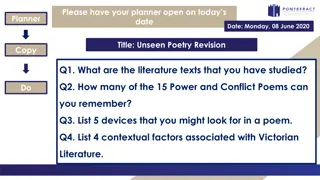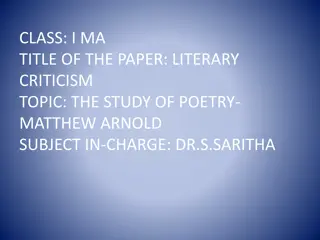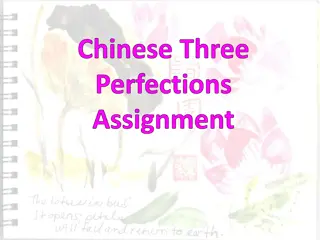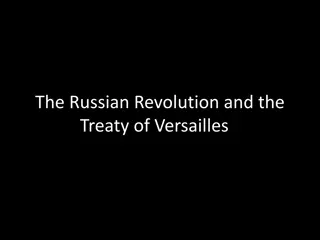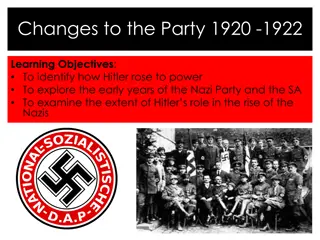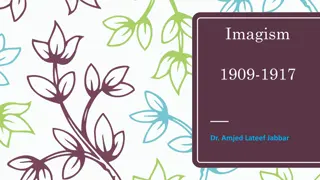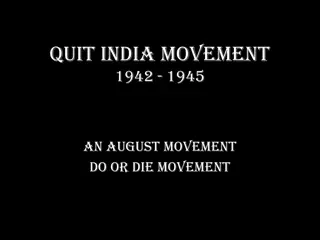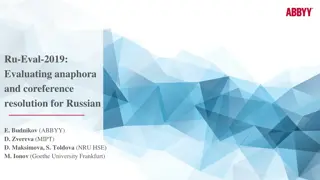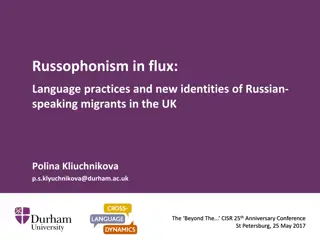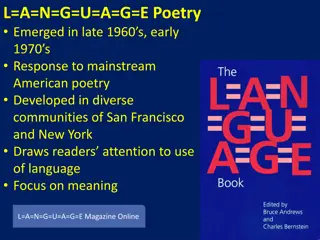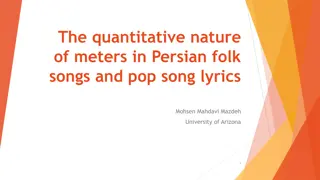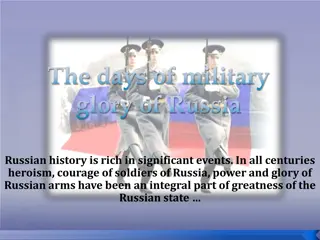Acmeism: Russian Poetry Movement of 1910-1920
The Acmeism movement, also known as the Guild of Poets, was a group of Russian poets active from 1910 to 1920. They emphasized clarity and direct imagery in concise poems rather than symbolism. Meeting at the Stray Dog Café in St. Petersburg, the poets focused on concrete ideas over abstract concepts, highlighting the importance of individual experiences. Influenced by poets like Innokentiy Fyodorovich Annensky and international figures such as Rudyard Kipling and Alexander Pope, the Acmeists aimed for raw and realistic expression in their works. The movement included prominent poets like Anna Akhmatova, Nikolay Gumilev, and Osip Mandelstam, shaping the landscape of Russian literature during that period.
Download Presentation

Please find below an Image/Link to download the presentation.
The content on the website is provided AS IS for your information and personal use only. It may not be sold, licensed, or shared on other websites without obtaining consent from the author.If you encounter any issues during the download, it is possible that the publisher has removed the file from their server.
You are allowed to download the files provided on this website for personal or commercial use, subject to the condition that they are used lawfully. All files are the property of their respective owners.
The content on the website is provided AS IS for your information and personal use only. It may not be sold, licensed, or shared on other websites without obtaining consent from the author.
E N D
Presentation Transcript
Acmeism Group of Russian poets about 1910-1920 Also called the Guild of Poets Focused on clarity; direct images in compact poems rather than symbolism Met in St. Petersburg at the Stray Dog Caf Title from the Greek highest point, best, perfection Concrete ideas not abstract Importance of the individual Raw & realistic
Mikhail Kuzmin (1872-1936) Anna Akhmatova (1889-1966) Sergei Gorodetsky (1884-1967) Nikolay S. Gumilev (1886-1921) Georgii V. Ivanov (1894-1958) Osip E. Mandelstam (1891-1938)
Influences: Innokentiy Fyodorovich Annensky (1855-1909) Russian poet Joseph Rudyard Kipling (1865-1936) British poet Pierre Jules Th ophile Gautier (1811-1872) French poet Alexander Pope (1688-1744) British poet
My own dream is lofty, simple thing: To seize the oar, put feet into the stirrups, And to deceive the time, that slow tries to stir us, By kissing lips, forever new and pink; When getting old, to keep the law of Christ, Cast down looks, put on sackcloth and ashes, Put on the chest, as heavy obligations, The iron Cross, that He died on for us. Don Juan by Nikolay Stepanovich Gumilev And only when, amidst the orgy s madness, I get my senses a sleepwalker aimless, Just frightened in the silence of his ways Then I recall: the worst of many others I had no children from a woman in my years And never called a man a brother.
Alone I stare into the frosts white face. It s going nowhere, and I from nowhere. Everything ironed flat, pleated without a wrinkle: Miraculous, the breathing plain. Meanwhile the sun squints at this starched poverty The squint itself consoled, at ease . . . The ten-fold forest almost the same . . . And snow crunches in the eyes, innocent, like clean bread. by Osip Mandelstam January 16, 1937 Only in Russia is poetry respected it gets people killed. Is there anywhere else where poetry is so common a motive for murder? Osip Mandelstam
On liubil tri veshchi na svete: Za vechernei pen e, belykh pavlinov I stertye karty Ameriki. Ne liubil, kogda plachut deti, A ia byla ego zhenoi. He loved three things in life: Evensong, white peacocks And old maps of America. He hated it when children cried, And I was his wife.
Nikto nam ne khotel pomoch Za to, chto my ostalis doma, Za to, chto, gorod svoi liubia, A ne krylatuiu svododu, My sokhranili dlia sebia Ego dvortsy, ogon i vodu. She chose to stay in Russia, but lost her freedom. No one wants to help us Because we stayed home, Because, loving our city And not winged freedom, We preserved for ourselves Its palaces, its fire and water.
